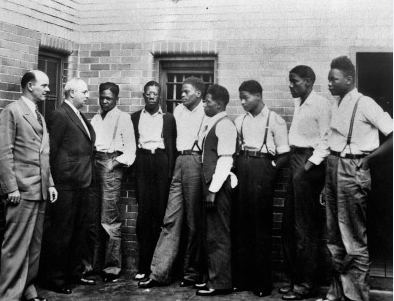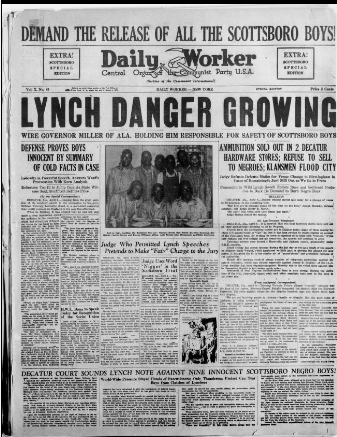

Thesis
Around the mid 1900s there was an upset in the court system. A trial that changed the ways of the supreme court occurred and lasted for much longer than expected. The Scottsboro Trial of 1931-1937 epitomizes the deep-rooted prejudice and injustice, extensive, in the American south during the Great Depression era. This case, marked by false accusations, deficient legal representation, and public exclamation, not only spotlighted the flaws in the American court system but also catalyzed the important Civil Rights movement, sparking important changes and inspiring generations to face racial discrimination and advocate for legal rights. The Scottsboro trial strongly impacted the U.S supreme court system and changed the lives of all Americans by becoming an important TURNING POINT in history.

*American Civil Liberties Unit*
"The reason I'm in trouble is prejudice against colored people; nothing but a frame-up."
~Charles Weems
"The Scottsboro Boys were nine Black teenagers falsely accused of raping two white women aboard a train near Scottsboro, Alabama, in 1931. The trials and repeated retrials of the Scottsboro Boys sparked an international uproar and produced two landmark U.S. Supreme Court verdicts, even as the defendants were forced to spend years battling the courts and enduring the harsh conditions of the Alabama prison system."
~*The writters of History.com editors*

*Library of Congress*
“No crime in American history – let alone a crime that never occurred produced as many trials, convictions, reversals, and retrials, as did the alleged gang rape of two white girls by nine black teenager on the Southern Railroad freight run from Chattanooga to Memphis on March 25, 1931."
~*The writters of Cornell Law's "The First Scottsboro Trials: A Legal Lynching